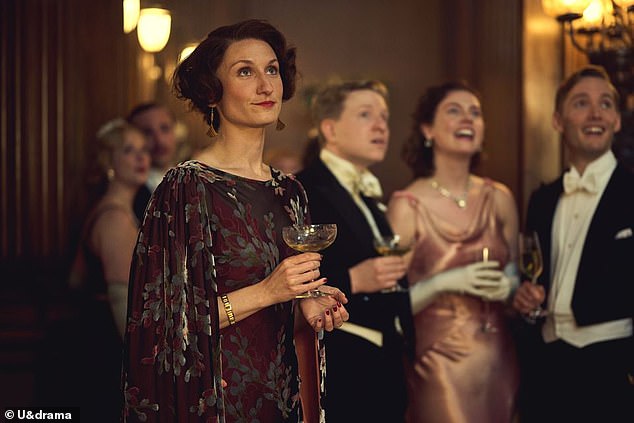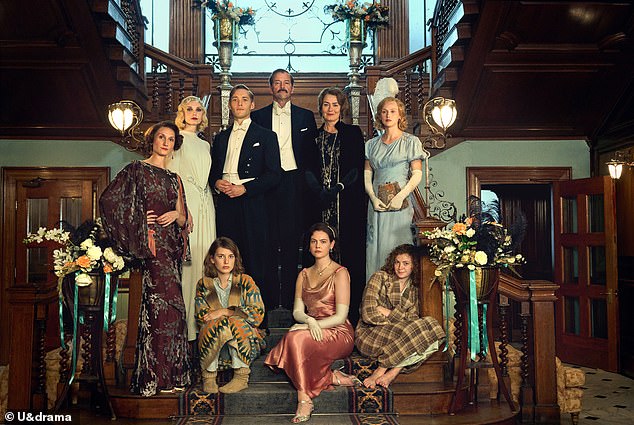Outrageous (U&Drama)
How odd that no one can do a 1930s BBC accent any more.
Any performer who attempts it sounds like Mr Cholmondley-Warner, the plummy twit from Harry Enfield’s sketch show.
The pre-war radio announcements in Outrageous sound like stilted send-ups. It’s almost as though actors harbour a subconscious fear that, if they mimic those patrician tones too perfectly, people will imagine they are also imbued with the snobbish, class-ridden attitudes of the times. How frightful!
Sadly, the dialogue is as unconvincing as the accents in this six-part period drama, a sort of Downton Abbey with added fascism.
Beginning in 1931, and set in the gilded world of the British aristocracy, all country houses and glittering debutante dances, it’s the story of the six ultra-privileged Mitford sisters.
Joanna Vanderham plays the most famous of them, socialite Diana, who dumps her fabulously rich husband Brian Guinness to run off with the leader of the Blackshirts (Joshua Sasse).
With the six young women, their parents and a brother, plus various chums all requiring introductions, screenwriter Sarah Williams relies on captions reminding us of their names.
The producers have taken the trouble to put together a press pack for journalists, including a family tree with more than 25 names across four generations, that looks like the wiring diagram for Blackpool illuminations.

Sadly, the dialogue is as unconvincing as the accents in this six-part period drama, a sort of Downton Abbey with added fascism

Beginning in 1931, and set in the gilded world of the British aristocracy, all country houses and glittering debutante dances, it’s the story of the six ultra-privileged Mitford sisters
Since viewers don’t have that cribsheet, the characters constantly have to tell each other who they are.
At one cocktail party, man-with-toothbrush-moustache approaches woman-with-tiara-glued-to-her-forehead and announces: ‘Mrs Guinness? Oswald Mosley. Everyone calls me Tom.’
She blushes and demurs: ‘I don’t think we’ve been . . .’ ‘Introduced?’ he adds helpfully.
A voiceover is supplied by the oldest of the sisters, Nancy (Bessie Carter), who was a comic novelist with an acid turn of phrase — a sort of P.G. Wodehouse with a nasty streak.
The real Nancy M. would have been mortified to have leaden lines like this foisted on her: ‘This was the calm before the storm but, in a few short years, all hell would indeed break loose, and not just for my family but for the world.’
If you’re happy just to watch for the sumptuous sets and fabulous costumes, the sheer look of the thing does go some way to redeem this show. Turn the sound down and you could almost be seeing outtakes from Brideshead.
But it’s impossible to believe in this 21st-century version of the Mitfords. Vanderham in particular seems desperate to hold her character at arm’s length, as though she’s ashamed of playing the part.
And Nancy’s reluctant boyfriend, Hamish Erskine (James Musgrave) was once described as, ‘like a kingfisher — all colour and sparkle and courage’. All we get is an insipid campness, like Mr Humphries fending off the attentions of Miss Brahms on Are You Being Served?
‘Ground floor: perfumerie, stationery, Nazi salutes . . . going up!’












